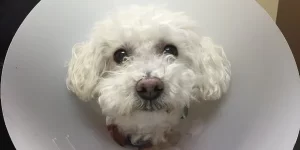A Veterinary Technician job description covers a multitude of tasks coping with both animals and their owners – so many, in fact, that it is simpler to list what they do not do. Veterinary technicians, often known for short as vet techs, do not make any diagnosis, do not perform surgery and do not prescribe medication. They do pretty much everything else.
The qualities needed for a vet tech are, obviously, first and foremost a love of animals. They also need to be good communicators and able to deal with clients who may be agitated or even distraught about the condition of their pet. They will work not only with clients, but in close co-operation with office staff and the veterinary surgeon himself.
Contents
Its About the Love and Care for all Animals
Veterinary technicians generally do not go into the profession for the money. The average salaries tend to be quite a bit lower than comparable medical jobs for human beings.
They need to be emotionally stable, because the creatures that they are dealing with only live for some three to twenty years overall, so there is quite a lot of grief involved – almost on a week to week basis. The other side of the coin is that there is also a considerable amount of joy when a sick animal is nursed back to full health.
They will also work with a wide variety of animals including many dogs and cats, rabbits, birds, horses, and farm animals such as cattle, pigs and sheep. Vet techs are found not only in veterinary surgeries, but in zoos, animal rescue shelters, animal research facilities, boarding kennels and racetracks.
Many Hats For Many Techs
The duties of these medical caregivers are considerable and center on the laboratory or the client.
Initial Examination
- Ascertain the reasons for the animal surgery visit.
- Weigh the animal, take its temperature, and record its case history.
- Provide advice to clients on things such as flea treatments, dental cleaning, diets, vitamins and so on.
- Advise clients as to how to administer medicines at home.
- Offer advice on on general welfare and care of the animal.
General Assistance
- Give medication or other treatment, including injections that the veterinarian physician has prescribed.
- Hold animals still while the veterinarian is conducting an examination.
- Express anal glands in dogs, trim their nails, and remove stitches.
Reception
- Answer the telephone.
- Make appointments.
- Welcome clients.
- Print invoices and collect payments.
- Discharge patients.
General Management
- Clean and organize the veterinarian’s treatment room.
- Take care of all the animal’s records
- Sort and give to clients medication that the veterinarian has prescribed.
- Order pet foods, medicines, and other products such as cat baskets, feeding bowls, dog leads, and any of the hundred and one other items that the surgery might supply to clients.
- Take stock of general inventory and other medical supplies.
- Train new employees and vet tech assistants.
In The Surgery
- Check that all equipment is in the correct position and clean and sterilized.
- Sterilize the equipment and ensure the surgery is clean.
- Assist the vet with surgical procedures.
- Prepare animals for surgery, such as shaving off fur.
- Give anesthetics to animals (most vet programs will teach this).
- Put seriously ill animals to sleep.
- Feed and walk animals, and bathe them when necessary.
Laboratory
- Take and develop x-rays.
- Take blood samples, urine samples, stool samples and tissue samples.
- Carry out an assortment of lab tests as required by the veterinarian.

Don’t worry little pup, it’s only temporary.
It can be seen that a vet tech job description and the duties of one are wide-ranging and cover many different functions. Above all, a veterinary technician has to be accurate in everything that he or she does, since the animal’s life may well depend on it. Getting a decimal point wrong in administering a drug or medication can make all the difference.
Furthermore, the life of a these animal techs may not suit everyone, since the hours can be long, there can be overtime, and there may be call-outs at late hours or in the middle of the night. Helping sick animals, who may be frightened and even aggressive, can be both physically and mentally exhausting, and can sometimes lead to bites, scratches and other injuries when holding or attending to their needs.
The life of a veterinary technician while sometimes arduous and demanding – and never likely to make anyone wealthy in financial terms – can nonetheless be extremely rich and rewarding from many other points of view.
An LVT (Licensed Veterinary Technician) will have trained at an accredited school and attained an associate’s degree in veterinary technology (or higher) and passed a national exam. The required qualifications vary between different states.

